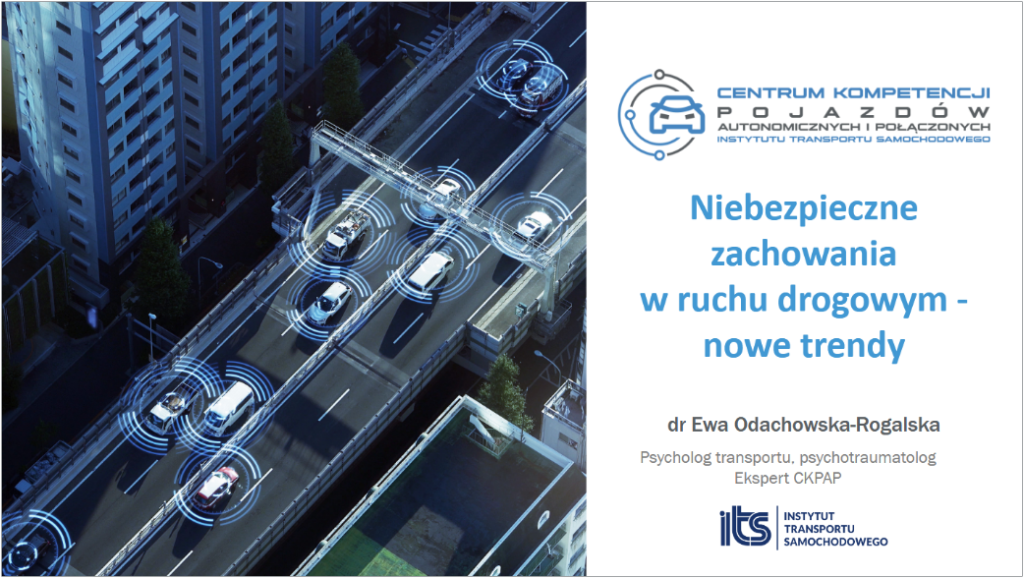Blog
XIV International Conference GAMBIT 2023 with the participation of CK:PAP
On May 29-31, 2023, the 14th International Road Safety Conference GAMBIT 2023 was held in Gdańsk, attended by experts from the Connected and Autonomous Vehicles Competence Centre of the Motor Transport Institute (CK:PAP). Dr Ewa Odachowska-Rogalska, transport psychologist, gave a presentation entitled “Dangerous behaviour in road traffic – new trends”, in which she paid attention to the observed changes in the approach to research on driver behaviour and the use of knowledge about autonomous vehicles in reducing risky behaviour on the road.
The CK:PAP expert also referred to the issue of vehicle automation as an opportunity to mitigate the impact of human constraints on dangerous road events, because the number of information processed simultaneously in the case of a human is limited. The dynamic situation on the road requires the driver to be able to make many decisions in a very short time, often under the influence of emotions. Perceptual skill is required to perceive signs, objects, events and people while driving. The algorithm of the automated vehicle, on the other hand, enables the selection of information using the mechanism of its reduction. The speed of making decisions and perceiving all signals and stimuli coming from the environment cease to be a problem in the case of fully automated vehicles. However, the question remains how an autonomous vehicle will behave in an unusual situation, the solution of which the algorithm did not predict – said Dr Ewa Odachowska-Rogalska.
The deployment of automated vehicles also provides new insights. The presentation noted that there are some issues with the need to transfer control when using automated systems or functions. The unforeseen and sudden need to take control of the vehicle under time pressure puts a heavy strain on the driver. In critical situations on the road, when using partial automation, drivers experience worse driving parameters (i.e. longer reaction times, collisions or accidents) than in manual driving conditions. In addition, drivers are much worse at taking control of the vehicle in unexpected, critical situations when they have a high level of trust in the system. Studies show that when the driver was attentive and the need to take control was predictable and expected, it took an average of 10 seconds to regain proper control of the vehicle, while in distracted conditions the reaction time was almost 3-4 times longer.
***
- Despite numerous campaigns, approximately 90% of accidents are caused by inappropriate human behaviour.
- Vehicles equipped with driving automation systems are a great opportunity to increase the level of road safety.
- The safe implementation of highly automated vehicles requires the development of appropriate competencies, awareness and acceptance of both current and future users.
- It is necessary to conduct social campaigns, extensive training for drivers, as well as psychoeducation that takes into account the limitations of the individual as well as early school education and communication education
Source:
Odachowska-Rogalska E., Presentation entitled: “Dangerous behaviour in road traffic – new trends”.


